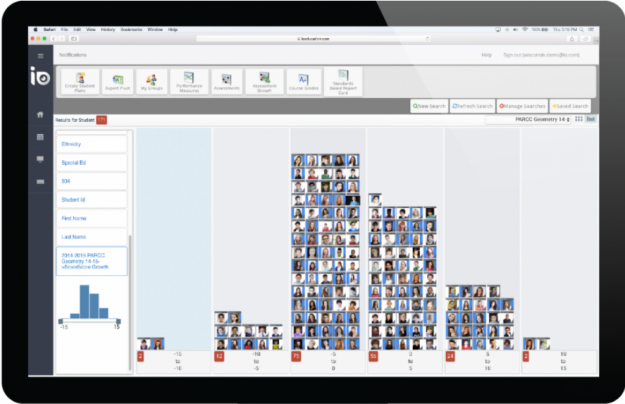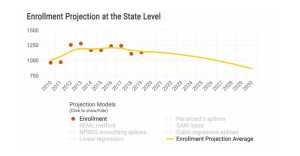Empowering educators to ‘dig down’ through data

Administrators at the Lee County School District in Alabama are rethinking the ways they can analyze and improve student performance using data.
Three years ago, they had no unified, centralized system to organize and analyze data. But they were acutely aware that collecting the various data points reflecting students’ academic progress could unlock the potential to better understand and evaluate the performance of each student.
That led Superintendent James McCoy and other educators in the eastern Alabama county to commit to a plan that would aggregate data in one place and build a culture in which teachers could use data to create personalized learning plans for each student. McCoy’s team eventually selected a K-12 data-analysis platform from Atlanta-based IO Education to help meet that objective.
McCoy said he was impressed how the software, called IO Insights, “allows you to organize student data on a virtual data wall and use that to identify and dig down into problem areas. At Lee County, we jumped in with both feet and implemented it in our schools,” according to a case study made available by IO Education. The county is home of Auburn University, and the district serves nearly 10,000 students.
McCoy isn’t alone. IO Education’s data tools are being used in some 7,000 schools in all 50 states, including six districts in California, which recently acquired IO Insights to better track and report on progress on the state’s Local Control and Accountability Plan (LCAP), company officials said.
“With IO Education, we can create custom dashboards to track student progress more closely and identify any students who may begin to show signs of struggling,” said Silvia San Martin, director of accountability and assessment at the Pomona Unified School District.
In Lee County, McCoy said the system is easy to learn for digital newcomers, but also has yielded meaningful results. “The visual experience of the virtual data wall makes it very easy to navigate all of the student data,” he said. “It has been a very smooth transition.”
Since deploying the system, the impact has been palpable, Lee County officials say. Teachers and administrators have fully embraced the system and are using it on a daily basis to analyze and track student progress against their personalized learning plans. They see a direct correlation between educators who use IO Insights and positive student growth, according to the IO Education case study.
“IO Insights allow us to do everything we want to do in one place,” said Jason Hunter, assistant superintendent of secondary education for Lee County. “It creates that consistency we are looking for from a classroom-teacher perspective. … It has been very effective for us.”
Doug Mesecar, vice president of strategic partnerships at IO Education, said that providing an friendly visual representation of the data, as the company’s platform does, rather than eye-blearing rows and columns of figures, is the first step in getting a handle on student performance.
“You’ve got so much information coming in that you’re drowning in it,” said Mesecar, a former assistant deputy secretary at the U.S. Education Department. “You don’t know what it means or how to put it all in one place to create a coherent picture. So clearly technology is an answer to that kind of challenge.”
While the company’s platform makes data easier to understand and engage with, “that’s not enough,” he said. “You have to turn that data into information and the information into action. Through the software, you can filter the data in different ways and get a more holistic view of the kids. And then you can say, ‘These five or six kids that I’ve identified through looking at their data appear to be having some real challenges and I’m going to put them in a group and assign some specific materials around that.’”
IO Education recently formed a partnership with the California-based Institute for Evidence-Based Change (IEBC), a nonprofit organization that works with education organizations and leaders, helping them identify the data required to make informed decisions and gain the knowledge and skills to act on them. IO Education will work with IEBC to advise school district administrators and educators on strategies for turning raw data in useful insights and meaningful action, officials said.
Brad Phillips, president and CEO of IEBC, said the collaboration will advance IEBC’s “mission of helping educators make smart, data-informed decisions that ultimately benefit students.”




